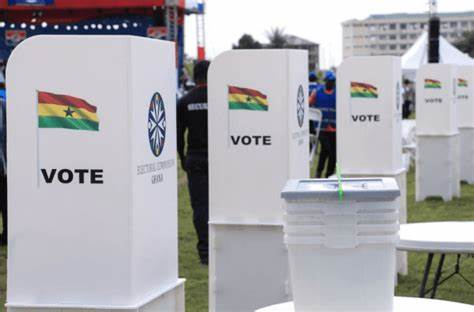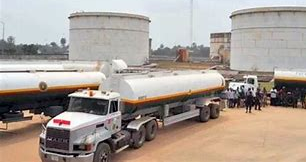Introduction
In a revealing and somewhat startling disclosure, Dr. Opoku Ware Ampomah, the Chief Executive Officer of the Korle Bu Teaching Hospital (KBTH), has shed light on a growing medical concern in Ghana. He has brought to the forefront the alarming fact that there are approximately 700 to 1,000 people in Ghana who depend on dialysis treatments. This article will delve into the significance of this revelation and the challenges that come with it.https://kbth.gov.gh/
The Current Situation
A High Volume of Patients
Dr. Ampomah disclosed this alarming statistic during a recent visit by a team from The Maker’s House Chapel International, who generously donated GHS 100,000 to the Dialysis Unit of the Hospital. Out of this substantial number of dialysis patients in the country, the Dialysis Unit at KBTH cares for around 350 patients. What is even more astonishing is that they perform a staggering 2,000 dialysis sessions each month.
A Helping Hand
The generous donation of GHS 100,000 by The Maker’s House Chapel International, coupled with an additional GHS 50,000 contribution to the Dialysis Unit at the 37 Military Hospital, amounts to a total of GHS 150,000. This benevolent act is the Church’s way of reaching out and addressing the pressing issues that patients and society face.
The Challenge of Dialysis Fees
Dr. Ampomah, the Chief Executive Officer of the Korle Bu Teaching Hospital (KBTH) has openly discussed the financial challenges faced by the Dialysis Unit. The fluctuating exchange rates and the high cost of importing dialysis equipment have made it difficult to cover the operating costs. The GHS 300 fee charged for dialysis treatments is not enough to break even, and as a result, the Hospital faces a monthly shortfall of GHS 961,000. The accumulated loss due to this challenge has already reached GHS 4 million.
Misconceptions About Fee Increase
Dr. Ampomah, the Chief Executive Officer of the Korle Bu Teaching Hospital (KBTH) clarified that the Hospital has not increased the fee for dialysis, as has been speculated. He emphasized that the decision to adjust the fee rests with the Fees and Charges Committee of Parliament, rather than the hospital’s administration.
A Growing Concern: The Need for Kidney Transplants
Dr. Louis Agyeman Siriboe, Head of the Dialysis Unit at 37 Military Hospital, highlighted the gravity of the situation. He mentioned that their unit records ten new cases of kidney disease every week. Although dialysis is ideally performed three times a week, the exorbitant costs involved lead most patients to have it only once a week. Dr. Siriboe strongly urged the Government to establish the necessary legal frameworks to facilitate kidney transplants as a preferred option over continued dialysis, which can be physically and emotionally taxing.
Conclusion
The revelation by Dr. Ampomah about the growing number of individuals in Ghana dependent on dialysis treatments is indeed concerning. The challenges surrounding the financial aspects of dialysis are substantial, and the situation requires attention. The generous donations from The Maker’s House Chapel International are a step in the right direction, but more efforts are needed to address the long-term sustainability of dialysis programs in the country.
FAQs
1. What is the primary reason for the high number of people on dialysis in Ghana?
The primary reason is the increasing incidence of kidney disease in the country, which necessitates regular dialysis treatments.
2. Why is the cost of dialysis a significant challenge?
The cost of dialysis is a challenge due to fluctuating exchange rates and the high cost of importing dialysis equipment, which makes it difficult for hospitals to cover their operating expenses.
3. Has the fee for dialysis in the Korle Bu Teaching Hospital been increased?
No, the fee for dialysis in KBTH has not been increased, and any decision to change the fee rests with the Fees and Charges Committee of Parliament.
4. Why is there a call for more kidney transplants in Ghana?
There is a call for more kidney transplants to reduce the burden on patients who currently rely on dialysis, which can be physically and financially challenging.
5. What can be done to address the challenges faced by dialysis units in Ghana?
To address these challenges, there is a need for financial support, governmental initiatives to reduce costs, and a legal framework for facilitating kidney transplants as a long-term solution.
The Financial Challenge: Dialysis Treatment in Ghana
In the midst of the healthcare landscape in Ghana, dialysis treatment has emerged as a crucial aspect of medical care. However, the sustainability of providing these life-saving services faces significant challenges, particularly in the financial realm. This article delves into the various factors contributing to these challenges and explores the potential need for an increase in fees.
1. Exchange Rate Fluctuations
The fluctuating exchange rates in Ghana have a significant impact on the cost of importing dialysis equipment and related medical supplies. These fluctuations can lead to increased expenses for hospitals and dialysis centers, as they have to purchase these essential items in foreign currencies, and the cost can vary significantly over time.
1.1 Impact on Hospital Budgets
Exchange rate fluctuations affect the budgets of healthcare institutions, creating uncertainty in financial planning. The unpredictability of exchange rates can lead to budget shortfalls and financial challenges.
2. High Import Costs
Dialysis equipment and supplies are often imported, and these imports come with substantial costs. The high cost of importing these critical medical devices and consumables contributes to the financial burden faced by healthcare institutions providing dialysis services.
2.1 Cost of Specialized Machines
Dialysis machines are highly specialized and essential for treatment. Their high cost adds to the financial pressure on healthcare facilities.
3. Inadequate Fee Structure
The fee structure for dialysis treatments may not adequately cover the actual costs involved in providing these services. Dialysis is a complex and resource-intensive medical procedure that includes the use of specialized machines, medical personnel, and consumables. If the fees charged to patients do not align with the actual costs incurred by the Korle Bu hospitals, it can lead to financial shortfalls.
3.1 Balancing Affordability and Sustainability
Hospitals strive to keep dialysis treatments affordable for patients, but striking the right balance with financial sustainability is a formidable challenge.
4. Increasing Demand
The increasing incidence of kidney disease in Ghana has led to a rising demand for dialysis services. As more patients require dialysis treatments, healthcare facilities must expand their capacity to meet the demand. This expansion can result in higher operating costs, further exacerbating the financial challenge.
4.1 Pressure on Infrastructure
The need to expand and upgrade infrastructure to meet growing demand places additional financial stress on healthcare institutions.
5. Government Regulations
Government regulations and policies related to healthcare fees can also impact the financial situation of dialysis units. If government authorities do not adjust reimbursement rates or subsidies in line with rising costs, healthcare institutions may struggle to cover their expenses.
5.1 Role of Government in Sustainability
The government plays a pivotal role in ensuring the financial viability of dialysis services through regulatory frameworks and subsidies.
6. Economic Conditions
Broader economic conditions in Ghana, such as inflation and economic stability, can influence the financial challenges faced by healthcare facilities. Economic downturns or instability can affect the ability of healthcare providers to invest in equipment and cover operational costs.
6.1 Economic Resilience
The resilience of dialysis services in the face of economic challenges is essential for the well-being of patients.
7. Accumulated Losses
Over time, if healthcare institutions continuously operate at a deficit, the accumulated losses can become substantial. This accumulation of debt can further strain the financial health of these institutions.
7.1 Long-Term Sustainability
Addressing accumulated losses is crucial for ensuring the long-term sustainability of dialysis services.
Conclusion
In light of these complex challenges, healthcare institutions may find it necessary to consider adjusting fees for dialysis treatments to ensure financial sustainability. However, such fee adjustments would typically need to be determined by relevant government bodies or committees, as was mentioned in the article. These committees consider various factors, including the financial challenges faced by healthcare providers, when making decisions about fee changeshttps://kbth.gov.gh/.
FAQs
1. Why are exchange rate fluctuations a challenge for dialysis treatment in Ghana?
Exchange rate fluctuations affect the cost of importing essential dialysis equipment and supplies, creating financial uncertainty for healthcare institutions.
2. How does increasing demand impact the financial challenges of dialysis services?
As the demand for dialysis treatments rises, healthcare facilities must expand, leading to higher operating costs and financial pressure.
3. What role does the government play in addressing the financial challenges of dialysis treatment in Ghana?
Government regulations and subsidies wield substantial influence over the financial feasibility of dialysis services, directly shaping their long-term sustainability. The implementation of regulations can impose certain standards, requirements, or limitations on dialysis service providers, impacting their operational costs, quality of service, and overall accessibility. Subsidies, on the other hand, can offer financial support or incentives to dialysis centers, potentially alleviating operational expenses or making services more affordable for patients. Both regulations and subsidies play pivotal roles in determining the economic viability and continuity of dialysis services within the healthcare system.
4. What is the significance of balancing affordability and sustainability in the context of dialysis fees?
Balancing affordable dialysis fees for patients with the financial sustainability of healthcare institutions is essential but challenging.
5. How can healthcare institutions address accumulated losses in the provision of dialysis services?
Addressing accumulated losses is crucial for the long-term sustainability of dialysis services and may involve revising fee structures or seeking government support.

















